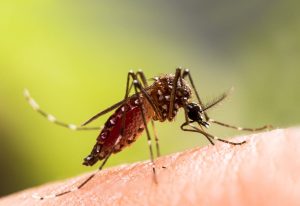
ON AUGUST 30, 2016, R&B star Chris Brown and the LAPD engaged in a 14-hour standoff at the singer’s home. Former Miss California Baylee Curran’s 911 call — in which she told authorities that Brown aimed a gun at her just before a violent outburst — brought the police to Brown’s residence. After more than half a day spent in stalemate, the LAPD obtained a search warrant and arrested the singer, who was later released on a $250,000 bond.
The plot, if you will, of Brown’s encounter with police goes against the all-too-common norm, in which young men of color are killed by officers, who never stand trial for their actions. There will undoubtedly be those who will hold up Brown’s standoff as a shining example of so-called “black privilege,” in which authority figures are supposedly too frightened of the PC brigade to so much as appear to slight a person of color. That isn’t the case.
Chris Brown’s standoff with the LAPD showcased his — very real — privilege, but his skin color was not what saved him from suffering the same grisly fate as Philando Castile, Eric Garner, and Michael Brown. Rather, it was Brown’s class privilege, afforded by his wealth and fame, which allowed him to go unharmed during and after his 14-hour-long engagement with police forces.
Before we get too deep into this, let’s make one thing perfectly clear: I do not know if Chris Brown is guilty of whatever charges may be brought against him, and, frankly, those charges don’t matter. Police forces across the U.S. have made it clear that they have no problem refusing to protect — and even outright injuring — innocent people.
Yes, Chris Brown has a well-documented history of violent behavior, but that neither proves his guilt nor legitimizes his — thankfully hypothetical — summary execution. And, yes, Baylee Curran has a questionable history of her own, complete with outstanding larceny charges and a stripped Miss California title, but that does not make her a liar.
Simply put, none of us know what happened in Chris Brown’s home on that late August day. What we do know is that the LAPD’s lenient treatment of the R&B artist was driven, not by his skin, but by his notoriety.
In many ways, Brown’s interactions with police recall O.J. Simpson’s low-speed chase in 1994. The LAPD notified Simpson’s lawyer, Robert Shapiro, that his client had been charged with double murder, and gave him instructions to turn in the former football star. Shapiro and Simpson did not show up. Instead, Simpson and a friend fled in said friend’s — now infamous — white Ford Bronco. After a 75-mile chase that lasted just two hours, the LAPD finally booked Simpson, who was later acquitted.
Like Brown’s, Simpson’s pre-arrest case stood in stark contrast to the LAPD’s reputation for mistreating men of color. The Ford Bronco chase came just a few short years after the police department made headlines and incited riots over the brutal beating of Rodney King: a cab driver who led police on a high-speed chase after officers attempted to stop him for driving over the speed limit.
The LAPD began almost 10 years of overhaul efforts in 2000, but found itself involved again in contemporary discussions of police brutality when officers and killed Brendon Glenn and Ezell Ford, both of whom were unarmed and had been diagnosed with mental illness. In 2015, the LAPD was responsible for more deaths than any other law enforcement agency. Although black citizens make up just 9 percent of Los Angeles’ population, they accounted for 21 percent of the people shot by the city’s police department that year.
Clearly, the LAPD doesn’t avoid the use of deadly force when their targets are black. It does not fear accusations of racism or excessive force, in spite of its tainted history.
The story of classism within the LAPD is long and sordid. The agency organized SWAT teams after anti-brutality riots occurred in the Watts neighborhood in 1965. For decades, the LAPD has operated on a so-called “broken windows” policy, which theorizes that strict curtailing of small, non-violent offenses — selling loose cigarettes, for example, or jumping over turnstiles — maintains order and prevents civil unrest. There’s little to no evidence to show that this kind of law enforcement works.
What’s more, broken windows policing unfairly targets poor communities, in which small-time crimes are often more about survival than a flagrant disregard for the law. While the rich live in communities police patrol for protection, the poor live in neighborhoods that pad officers’ quotas. Not only are celebrities protected from police brutality by their notoriety and wealth — which increase the likelihood that an aggressive officer would be charged and convicted of crimes against them — they are not continuously on police radar as potential suspects.
The LAPD’s long standoff with Brown doesn’t prove racial equality, but that the class struggle is all too real.

-300x200.jpeg)









-300x241.jpeg)




